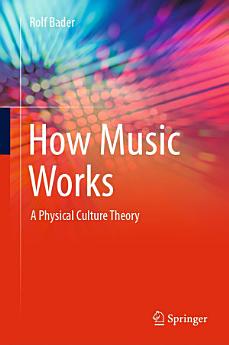How Music Works: A Physical Culture Theory
About this ebook
How do we understand culture and shape its future? How do we cross the bridge between culture as ideas and feelings and physical, cultural objects, all this within the endless variety and complexity of modern and traditional societies? This book proposes a Physical Culture Theory, taking culture as a self-organizing impulse pattern of electric forces. Bridging the gap to consciousness, the Physical Culture Theory proposes that consciousness content, what we think, hear, feel, or see is also just this: spatio-temporal electric fields. Music is a perfect candidate to elaborate on such a Physical Culture Theory. Music is all three, musical instrument acoustics, music psychology, and music ethnology. They emerge into living musical systems like all life is self-organization. Therefore the Physical Culture Theory knows no split between nature and nurture, hard and soft sciences, brains and musical instruments. It formulates mathematically complex systems as Physical Models ratherthan Artificial Intelligence. It includes ethical rules for maintaining life and finds culture and arts to be Human Rights. Enlarging these ideas and mathematical methods into all fields of culture, ecology, economy, or the like will be the task for the next decades to come.




